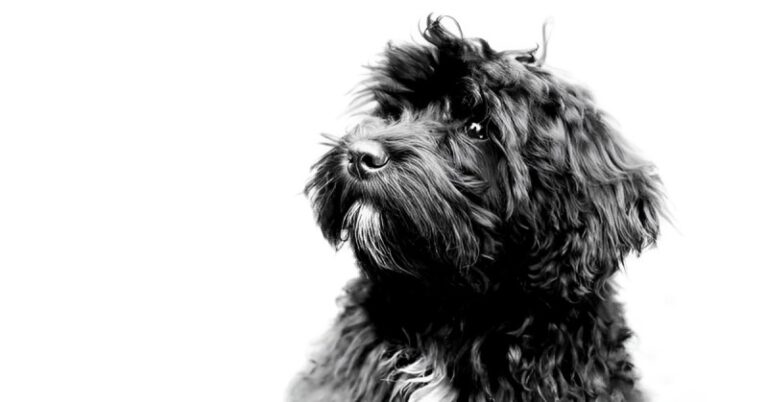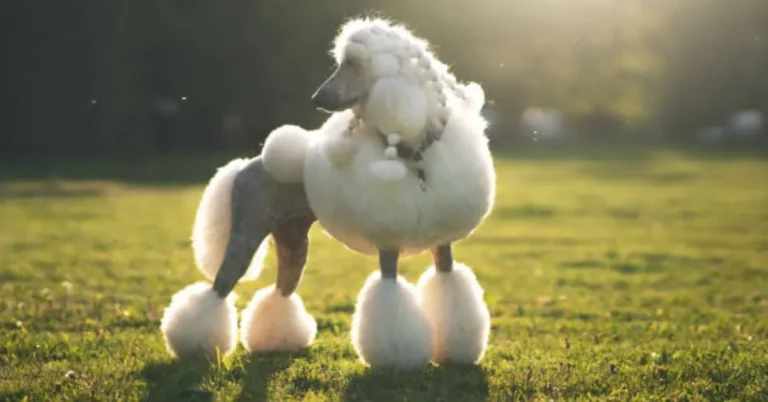Brown Lab Puppy:Physical Traits, Characteristics, Health Issues
Brown Lab puppy, a beloved breed renowned for its loyalty, intelligence, and affectionate nature. Brown Labs, also known simply as Chocolate Labs, are a variant of the Labrador Retriever breed, distinguished by their rich chocolate-colored coat.
With their friendly disposition and playful spirit, Brown Lab puppies quickly capture the hearts of dog lovers worldwide.
These delightful puppies are not only cherished companions but also versatile working dogs. Originally bred as retrievers for hunters, Brown Labs are adept swimmers and excel in various canine sports and activities.
Their keen sense of smell and innate retrieving instincts make them invaluable assets in tasks such as search and rescue, therapy work, and assistance for individuals with disabilities.
Sure, here’s a table comparing Brown Lab puppies (both dogs and bitches):
| Characteristic | Dogs | Bitches |
| Height | 22-24 inches (56-61 cm) | 21-23 inches (53-58 cm) |
| Weight | 65-80 pounds (29-36 kg) | 55-70 pounds (25-32 kg) |
| Coat | Short, dense | Short, dense |
| Colors | Chocolate brown | Chocolate brown |
| Lifespan | 10-12 years | 10-12 years |
| Suitable For | Families, active individuals | Families, active individuals |
| Origin | United Kingdom | United Kingdom |
| Litter Size | 6-8 puppies | 6-8 puppies |

Physical Appearance of Brown Lab Puppy
Coat Color and Texture
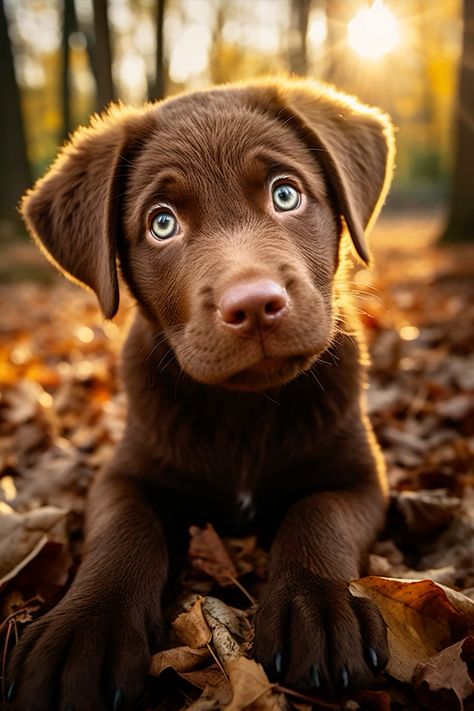
The Brown Labrador Retriever puppy, often simply called the Brown Lab, boasts a dense, water-resistant coat that is typically a rich chocolate brown color.
Their coat is short and straight, with a soft undercoat that helps keep them warm in colder weather.
Body Structure
Brown Labs have a sturdy build with a broad head and a strong, muscular body. They have a distinctive otter tail that is thick at the base and tapers towards the end.
Their ears are medium-sized, hanging down close to their head, giving them an alert and friendly expression.
Size and Weight
As puppies, Brown Labs are energetic bundles of fur, growing rapidly in their first few months. On average, they reach a height of 21 to 24 inches (53 to 61 cm) at the shoulder and weigh between 55 to 80 pounds (25 to 36 kg) when fully grown.
Facial Features
Brown Lab puppies have expressive eyes that are usually a warm, chocolate brown color, complementing their coat.
Their eyes are bright and intelligent, reflecting their curious and playful nature. They have a strong, well-defined jaw and a black nose that adds to their overall charm.
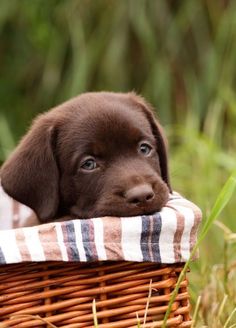
Gait and Movement
Brown Labs are known for their athletic ability and are built for endurance. Their gait is smooth and efficient, allowing them to move with agility and grace.
They have a natural tendency to retrieve and are often seen carrying objects in their mouths, a trait that is part of their instinctive behavior as retrievers.
The physical appearance of a Brown Labrador Retriever puppy is one of charm and beauty. With their rich chocolate coat, expressive eyes, and sturdy build, these puppies are a joy to behold.
Their friendly nature and playful demeanor make them wonderful companions for families and individuals alike.
Characteristics of Brown Lab Puppies
Temperament
Brown Labrador Retriever puppies are known for their friendly and outgoing nature. They are devoted and loving friends that are constantly trying to satisfy their owners.
Brown Labs are also highly intelligent, making them easy to train and capable of learning a variety of commands and tricks.
Energy Levels
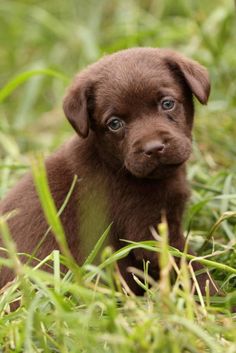
Brown Lab puppies are typically high-energy dogs, especially during their early months. They love to play and explore, and they require regular exercise to keep them healthy and happy.
Daily walks, playtime, and interactive toys are essential to help them burn off excess energy.
Sociability
Basically, Brown Labs are social animals that enjoy the company of humans and other animals. They make wonderful family pets and get along well with most kids.
Early socialization is important to ensure they develop into well-rounded and well-behaved adult dogs.
Adaptability
One of the key characteristics of Brown Lab puppies is their adaptability. They can thrive in various environments, from city apartments to rural settings, as long as they receive adequate exercise and mental stimulation.
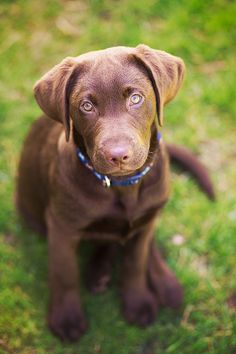
Trainability
Brown Labs are highly trainable and excel in obedience training and other canine sports. They are eager to please their owners, which makes training a rewarding experience for both the puppy and the owner.
Protective Instincts
While Brown Labs are typically friendly and approachable, they also possess a protective instinct towards their family.
They will bark to alert their owners of potential threats but are not aggressive without reason.
Brown Labrador Retriever puppies are delightful companions known for their friendly nature, intelligence, and adaptability.
Whether as a family pet or a working dog, Brown Labs excel in various roles, bringing joy and companionship to their owners’ lives.
With proper training, socialization, and care, a Brown Lab puppy can grow into a well-mannered and loving adult dog, enriching the lives of everyone around them.
Caring for Your Brown Lab Puppy
Nutrition
Providing a balanced diet is essential for the health and well-being of your Brown Lab puppy. Choose a high-quality puppy food that is appropriate for their age, size, and activity level.
To avoid obesity, keep an eye on their weight and modify their food consumption accordingly.
Exercise
Brown Lab puppies are energetic and require regular exercise to stay healthy and happy. Aim for at least 30 minutes to an hour of physical activity each day, such as walks, playtime in the yard, or interactive games like fetch.
Grooming
Brown Labs have a short, dense coat that is relatively easy to maintain. To keep matting from forming and to eliminate stray hair, periodically brush their coat.
Bathe them occasionally using a mild dog shampoo, and trim their nails as needed to prevent overgrowth.
Training and Socialization
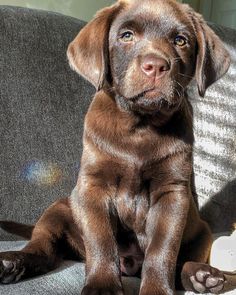
Early training and socialization are crucial for Brown Lab puppies. Start obedience training as soon as possible and expose them to various people, animals, and environments to help them become well-rounded adults. Use positive reinforcement techniques to reinforce good behavior.
Health Care
Regular veterinary check-ups are essential to ensure your Brown Lab puppy stays healthy. Remain current on heartworm treatment, flea and tick prevention, and vaccines.
Discuss a suitable vaccination and preventive care schedule with your veterinarian.
Dental Care
Dental health is important for Brown Labs. Brush your puppy’s teeth regularly and provide dental chews or toys to help keep their teeth clean and healthy.
Caring for a Brown Lab puppy requires commitment and dedication, but the rewards are immeasurable.
Generally, by providing proper nutrition, exercise, grooming, training, and health care, you can ensure your Brown Lab puppy grows into a happy, healthy, and well-adjusted adult dog.
Your efforts will be rewarded with years of love, loyalty, and companionship from your furry friend.
Common Health Issues for Brown Lab Puppies
Hip Dysplasia
Hip dysplasia is a common genetic disorder in Brown Lab puppies where the hip joint doesn’t develop properly, leading to arthritis and lameness.
A healthy weight, a balanced diet, and regular exercise can all help lower the risk.
Obesity
In addition, Brown Lab puppies have a tendency to gain weight, which can lead to obesity. Obesity puts strain on their joints and can exacerbate hip dysplasia.
Monitoring their diet and providing regular exercise are essential to prevent obesity.
Ear Infections
Brown Labs are prone to ear infections due to their floppy ears that can trap moisture and dirt. Ear infections can be avoided with good hygiene and routine ear cleaning.
Progressive Retinal Atrophy (PRA)
PRA is a genetic eye disorder that can lead to blindness in Brown Labs. Regular eye check-ups with a veterinary ophthalmologist can help detect and manage PRA early.
Exercise-Induced Collapse (EIC)
EIC is a hereditary condition in Brown Labs that causes them to suddenly collapse after intense exercise. It’s important to monitor their activity levels and avoid overexertion.
Bloat
Generally, Bloat, or gastric dilatation-volvulus (GDV), is a serious condition that can affect large, deep-chested breeds like Brown Labs.
It happens when gas builds up in the stomach and causes it to twist, stopping blood flow. Feeding them smaller meals and avoiding vigorous exercise after eating can help reduce the risk.
While Brown Lab puppies are generally healthy dogs, they are prone to certain genetic and environmental health issues.
Regular veterinary check-ups, proper nutrition, exercise, and preventive care can help mitigate these risks and ensure a long and healthy life for your furry friend.
Food Requirements for Brown Lab Puppies
Protein-Rich Diet
Brown Lab puppies require a diet rich in high-quality proteins to support their growth and development.
Look for puppy foods that list a protein source, such as chicken, beef, or fish, as the first ingredient.
Balanced Nutrition

Ensure your Brown Lab puppy’s diet is balanced and provides essential nutrients such as vitamins, minerals, and omega-3 fatty acids.
For the sake of their general health and wellbeing, these minerals are essential.
Puppy-Specific Formulas
Choose a puppy food specifically formulated for large breed puppies, as they have different nutritional needs compared to small breeds.
These formulas support healthy bone and joint development.
Feeding Schedule
Establish a regular feeding schedule for your Brown Lab puppy, offering meals at the same times each day. Avoid free-feeding to prevent overeating and obesity.
Monitoring Growth
Monitor your puppy’s growth and adjust their food intake accordingly. A healthy weight is crucial for their joint health, especially considering their predisposition to hip dysplasia.
Treats and Supplements
Limit treats to avoid overfeeding and choose healthy, low-calorie options. Before introducing any supplements to your puppy’s diet, speak with your doctor.
Providing your Brown Lab puppy with a nutritious diet is essential for their growth, health, and well-being.
By selecting high-quality puppy food, ensuring a balanced diet, and monitoring their growth and weight, you can help your puppy grow into a healthy and happy adult dog.
See also: White labrador puppy
Frequently Asked Questions
Despite being the least popular of the three AKC-accepted coat colors, chocolate labrador retrievers are still highly coveted and often produced.
“Chocolate” is really a shade of dark brown. They usually have bright to dark brown eyes and noses that complement their skin tones.
Yes, for those who are new to owning dogs, brown labs can be a terrific option. In general, they are amiable, adaptive, and simple to teach.
But it’s necessary to provide them the right kind of exercise, socializing, and instruction.
Like any other dog breed, chocolate labs can be challenging to teach, but they are typically easy to handle.
Their excessive energy is one issue they frequently face. Due to their renowned endless energy, chocolate labs can be challenging to discipline during training sessions.
Compared to black or yellow Labradors, chocolate Labradors have a 1.4-year lower median lifetime of just 10.7 years.
Conclusion
In the final analysis, the Brown Labrador Retriever puppy is cherished for its loyalty, intelligence, and affectionate nature.
Their rich chocolate coat and friendly demeanor make them delightful companions. With proper care, including a balanced diet and regular exercise, they thrive as both family pets and working dogs.
Cherish each moment with your Brown Lab puppy, as they bring joy and lasting companionship.


